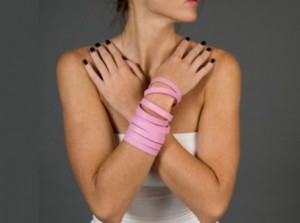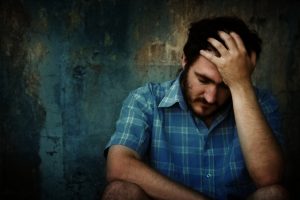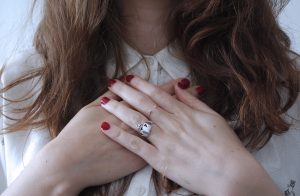How Having Breast Cancer Taught Me to Live

The blond, petite technician glanced at me as she re-entered the room carrying my mammogram films. Why is she looking at me like that? I thought. My suspiciousness, my “normal” state of mind in any doctor’s office, escalated into paranoia; my internal alert system climbed from yellow, skipped orange and headed straight into the red. My heart pounded, and I felt strangely embarrassed when my doctor came into the room.
Oh, my God, I thought, This is it!. I know she’s going to tell me I have cancer. What Dr. Hansen did say was that she needed to do an ultrasound and perform a biopsy, because she had spotted something on my mammogram. An hour later, I learned that the tests revealed a small, malignant tumor in my left breast. I was scheduled for surgery the following week.
Walking toward the elevator at the cancer center at St. John’s Hospital in Santa Monica, I was numb and a little panicky. But I was also more alert than I had been when I had arrived for my annual checkup. I noticed I was irritated by the Early American décor, including the braided rugs, in the hallways and waiting rooms, the pink ribbons everywhere. I immediately hated the two women I saw in the 4th floor boutique trying on scarves and wigs to cover their bald heads. I told myself I would never be a part of their “survivors’ club. Mostly, I wanted to stop at a nearby Bistro for a martini on the rocks, my favorite drink and the best pain-killer I could think of at the time. But I just drove home.
I threw myself into work and put off calling any of my family or friends, rationalizing that I was too busy and would call them soon. But I didn’t. The truth was that I didn’t want anyone to know that I had cancer. I dreaded answering all of their questions about my “condition.” Where I grew up people didn’t talk about cancer, or if they did, they referred to it in whispers as the “Big C.” It definitely had a stigma attached to it, as though it were something dirty.
Over the next several days, the embarrassment I originally felt with Dr. Hansen morphed into feelings of humiliation and shame: I not only felt defective and dirty, but also envisioned myself as crippled, sexless, useless, and really, really old. My thoughts toward myself were becoming more and more vicious. I was in a depression. Fortunately, I knew enough to recognize that my critical inner voice had stepped in and that it was taking advantage of an admittedly negative event in my life to attack me. Even though it was attacking me about cancer, the underlying message was all too familiar: my body was defective and shameful. This was the same way I had felt about my body as a very tall and skinny young girl.
I decided to challenge these negative views of myself by taking steps to go against them. In spite of the fact that I felt so ashamed, I stopped hiding out. I contacted my family and friends, and I told them that I had cancer. This wasn’t easy to do but once I took this action, I felt immediately better. My voice attacks lessened, and my depression lifted.
When I told people about my having cancer, I was surprised and deeply moved by their reactions. On some level, I was expecting them to have the same critical feelings toward me that I was having toward myself. But instead of being repulsed and pulling away or recoiling from me, they were caring and compassionate, loving. They encouraged me to talk about what I was going through. I talked about everything: my critical thoughts about myself, my fears of surgery and radiation, and even of death. I had cried when I was alone, but I felt better expressing these feelings with someone who cared.
Something happened then that surprised me. From the touching interactions that I had with friends and family, I was made aware of what I meant to them and of how much they meant to me. These feelings aroused profound sadness in me about the relationships that I value, and about how much I cherish my own life. There had been one lingering voice attack that was persistent and seemed to have the goods on me: You are old! You can’t argue with the number! But I noticed that when I felt this sadness, that voice attack disappeared.
The sadness and depth of feeling that I now felt had the effect of making me want to live life more fully. Over the next several months, I gave up my way of working compulsively and devoted more time to my friends and family. I recognized that my “work-alcoholic” patterns had kept me cut off from feeling very much about my life. They had protected me from the reality that time was passing, and that I faced inevitable losses in the future. I was more energized and centered in myself as I changed these habitual patterns.
I feel that I learned two important lessons from the experience of having breast cancer. First, I learned that when something happens that frightens me and makes me aware of how vulnerable I am, I tend to turn against myself. At such times, it is important for me to reach out to loved ones to counteract the urge to isolate and go inward with the self-attacking thoughts that are aroused. Second, I realized that when I began to lead a more fulfilling life and to be closely involved with other people, I became aware that I had a great deal to lose. This awareness brought me face to face with the painful fact of my mortality, but this has lent a special poignancy to each moment of my everyday life.
Tags: breast cancer awareness, health awareness, life change, overcoming breast cancer









Leave a Reply
You must be logged in to post a comment.